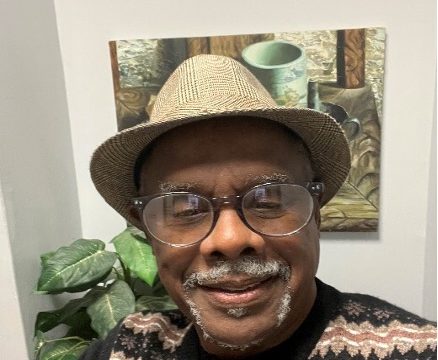

Share House Holiday Brunch at The Vine Cafe
I got off the elevator on the 4th floor and stepped into the lobby of Share House Douglas, a non-profit organization that provides services for victims of family violence and was taken aback by the large number of Christmas gifts on every table and in every corner. I looked back to be sure that I’d gotten off on the right floor and not into this Winter wonderland. Who are these gifts for, I wondered.

A few minutes later Teresa Smith, the center’s Executive Director, who I’d met earlier that day at a holiday brunch, warmly greeted me and escorted me down a hallway and into a conference room, both with shelves stacked with Christmas gifts.
Over the next 45 minutes, Teresa walked me through the Center’s vast range of services it offers to Douglas and Paulding counties and its daunting challenges. She then confirmed a hunch I came in with; that there are upticks in incidents of domestic violence during the Christmas holidays.
“Absolutely. There are a number of causative factors, inflation, unemployment, stress and the pandemic among them. So yes, we definitely see increases in cases of domestic violence this time of the year, especially in January,” she confirmed.
Although there are degrees of domestic violence, she explained, at the top of the list of what she sees is physical abuse, from shootings, beatings and, in a recent case, a father setting a home on fire in the presence of children.
“In cases when children witness violence, they can be severely traumatized and are the typical ones who end up in our Teen Center.”
Teresa then cited a long list of services the Center provides and the role that faith-based institutions play in augmenting their resources. “I don’t want to name those institutions because I’ll probably miss a few,” she said with a laugh.
Although there is no such thing as a typical day for the domestic violence case manager, Smith pointed out that each case is different and sometimes necessitates a different response.
“For example, if we receive a frantic call, the case manager must make a quick determination as to whether the victim is in physical danger, which may require immediate removal from the situation and getting them into a shelter as soon as possible. Once there we do a comprehensive assessment.”
A short important pause here. Although some urge victims to simply leave their abusers, Teresa cautions that a victim is at the highest risk of losing her life once she makes the decision to leave the abuser. It’s much better to discretely point her to local resources for help.
Now compared to the years prior to the advent social media, today’s young people should be warned about the potential dangers in meeting people via social media. Said Smith, “We teach them to be extremely careful with establishing relationships with people they meet on social media since some of those relationships may lead to stalking, date rape or worse.”
One of the things that the Center is especially proud of is its relationship with local schools where Center kids attend.
“Our relationship with schools is mutually beneficial in that we’re able to communicate back and forth when any of our kid’s school performance could be impacted by trauma related to abuse. Those partnerships are extremely important for us.”
Smith smiled when I asked about any success stories that come to mind, the first that of a 12-year-old girl who came out of an abusive home.
“When she came to us, she was shy, lacked confidence and had poor grades. But over time we saw her grow to a point where her confidence increased, and she eventually joined numerous school clubs and organizations.” Another was when two of her Center youths were interviewed and featured in TV’s A&E episode #8 of pop singer Bobby Browns’ “Every Little Step” program.
I asked Smith for a parting message to domestic abusers, or potential abusers.
“They must know that domestic violence is against the law and that there are legal consequences. They should also know that domestic violence is not always physical, it can be in the form of mental and financial abuse and forced social isolation from the victim’s family and friends. So they’re not off the hook if they think that they are okay if they’re not physically abusing their partner.”
Smith also advises family members, friends and others to be alert to subtle signs that someone is being abused. “A lack of bruises, black eyes and broken limbs may not indicate the true story. Sudden changes in behavior may be a red flag.”
Now in deference to her time, I ended my meeting with Teresa unfulfilled with the knowledge that I’d only scratched the service in learning all there is know about domestic violence. But as I navigated my way back to the elevator through the array of Christmas gifts, it dawned on me (and answered my earlier question) that those gifts would be ripped open by gleeful kids in teen centers with their doting moms kneeled on the floor next to them.
As the elevator door closed, I took one last look at all those Christmas gifts and thought about the Share House Douglas staff that took time to wrap them. And I took one last look at a smiling Teresa Smith who reminded me of Della Reese who stared in the hit TV program, “Touched by an Angel.”
Touched by angels indeed!
© Terry Howard is an award-winning speaker, writer and storyteller. He is also a contributing writer with the Chattanooga News Chronicle, The American Diversity Report, The Douglas County Sentinel, Blackmarket.com, co-founder of the “26 Tiny Paint Brushes” writers’ guild, recipient of the 2019 Dr. Martin Luther King, Jr. Leadership Award, and 3rd place winner of the 2022 Georgia Press Award.


